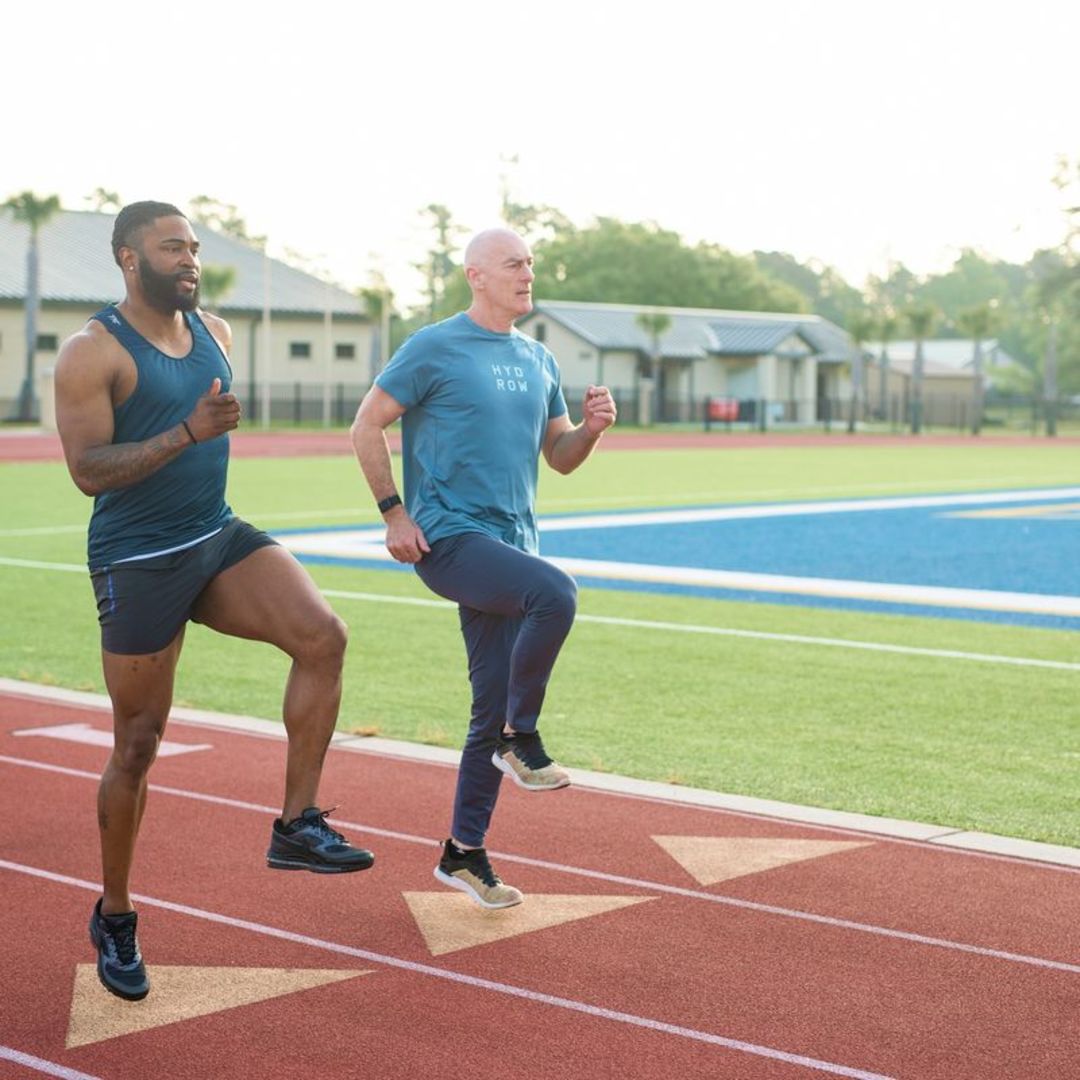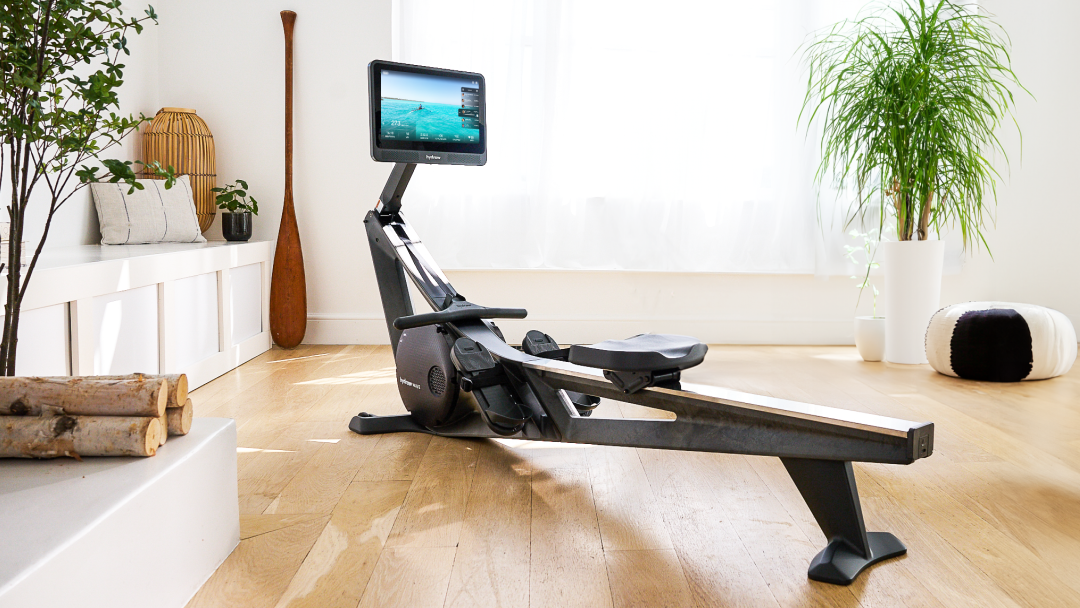Working Out Alone: The Pros and Cons

Like the way you choose to take your coffee, fitness is a personal affair, full of personal preference. Iced or hot? Cream or black? There’s no wrong way to do it, and your preferences may change depending on the day or simply over time.
Much like your morning cup, exercise will always be something you do for yourself, even if you are sharing it with someone else. No matter how you get your fix, your body and mind will benefit.
If you are wondering whether you should exercise alone, with a buddy, or in a group setting, the short answer is, whatever motivates you most on a given day! But if you find yourself wanting to switch it up or without your normal workout class or friend, here is a list of the pros and cons of working out alone:
The pros of working out alone
There are a ton of benefits unique to solo exercise, including the following:
1. You are in control of your own schedule
Working out on your own reduces the energy spent on planning out your meetups with other people. Especially if you are someone with an unconventional or inconsistent work schedule, coordinating with others can sometimes feel stressful enough that it acts as a barrier to working out at all.
When working out solo, you can determine how frequently, which days, and for how long you want to exercise — no texting required!
2. Working out alone can be more efficient
If you’re someone who likes to be in and out of the gym in as little time as possible, solo workouts are a great option. They give you more control over your own time, allowing you to get more done in a shorter period.
While it can definitely be fun to have some social time at the gym, you’ll be speedier without the chatter if you have somewhere else to be.
Related blog: How Often Should You Exercise?
3. You’ll be more focused on your workout
For many, the benefit of exercising out with a partner is that you can gab away throughout the duration of your workout (and perhaps even distract from some of the physical discomfort or mental boredom of exercising). However, when you’re working out alone, you have more mental focus to devote toward making sure your form is correct and that you’re maximizing every movement you make.
4. You’ll have more privacy
Working out on your own — especially in the privacy of your own home — has its advantages. Here, you set the rules, whether you’re picking your attire, music, or workout of choice.
If you find yourself getting self-conscious in workout classes or in busy gyms, finding some solitude at home may give you the space you need to make that big jump in fitness you’ve been striving for.
5. You’ll get some “me time”
If your lifestyle or job requires an excess of social interaction, time spent around people every day can be draining (especially if you’re an introvert). Exercising solo can help you re-energize your social battery. Many people also find that combining their “me time” and “workout time” can be hugely beneficial for stress relief and general happiness.
The cons of working out alone
We’d be lying if we said there aren’t any drawbacks to solo exercise, but the great news is that there are ways to overcome these drawbacks by carefully selecting your workouts and finding a community for yourself.
Here are some of the potential downsides of solo exercise, along with how to mitigate those less-desirable parts:
1. You have less accountability
Working out on your own means you have to be your own coach and cheer squad. This lack of accountability can lead to inconsistency in your workout routine if you’re feeling so unmotivated that you decide to continually skip workouts or cut them short.
Luckily, accountability can come from many places (including yourself!):
Fitness apps: There are a ton of apps available that will track your workouts and physical progress. Most sync automatically with your smart watch and upload your performance to the app, as well as any social media platforms you have connected. Tracking your progress with a fitness app can be a fantastic motivator and source of accountability.
Friends: Hey, just because you aren’t working out with your friends doesn’t mean you can’t still hold each other accountable! Start a group chat with your friends to share your goals, workout plans, and when you’ve finished. This is also a great excuse to keep in touch with people.
Online communities: Beyond your own friend group, you can also connect with other people in the fitness space online to share your wins, challenges, and goals. For example, Hydrow tracks your workout streaks, shows your leaderboard rankings in workouts, and has a thriving online community to keep you motivated.

What’s your fitness style?
Take our quiz and receive a customized 14-day training program.
2. You can get into bad habits with your form, technique, or safety
Despite the focus you gain from solo workouts, the drawback to this is the potential to focus on the wrong things or continue bad habits you may not be able to see. Good technique is important when it comes to keeping yourself injury-free, so here are a few tips to self-correct and seek help when necessary:
Try doing your workout in front of a mirror. The instant visual feedback is helpful for fixing and maintaining form.
Record a workout on your phone and watch it back. Though this feedback isn’t necessarily instant, video playback is still extremely helpful for tracking technical changes over time. You can also send it to coaches or friends to see whether they notice anything you don’t!
Look into personal coaching. For example, Hydrow offers a 1:1 Personal Coaching service in which a rowing coach will watch you row at home via a video chat and give you advice for improving your technique.
3. You’ll lose social interaction by working out alone
Studies have shown that even loose social ties are important for human happiness, and many of us find those social connections in our fitness spaces. Solo exercise can make it difficult to get a healthy dose of social interaction in your day, especially if you work from home.
So, if you are on the lone-wolf workout grind but need a support system, seek them out where you can. We often find social interaction in the same places we find accountability, whether it’s connecting with your friends in a fitness group chat or joining an online community of fellow fitness enthusiasts.
On the Hydrow: Alone, but not lonely!
Whether your solo workout is out of preference or necessity, remember that the benefits of individual work can be empowering. Though it can be daunting, there are tools to make things a little less lonely along the way. Even if you’re on your own, you don’t have to be alone!
There are of course some methods of solo exercise that allow you to receive all the benefits of working out alone, but never feel lonely. For example, investing in a professional rower like Hydrow allows you your privacy, lets you make your own workout schedule, and gives you an efficient workout. And, if you're worried about feeling motivated, our team of Hydrow Athletes are there to keep you company with every stroke.
Hydrow rowing machines also come with an extensive library of workout content filmed in gorgeous locations around the world. Our rowing, yoga, Pilates, and circuit training workouts will transport you to stunning global destinations and keep you motivated to come back again and again.
Learn more about the benefits of rowing today!

Explore Hydrow
Learn more about how you can transform your fitness routine with a rowing machine.






